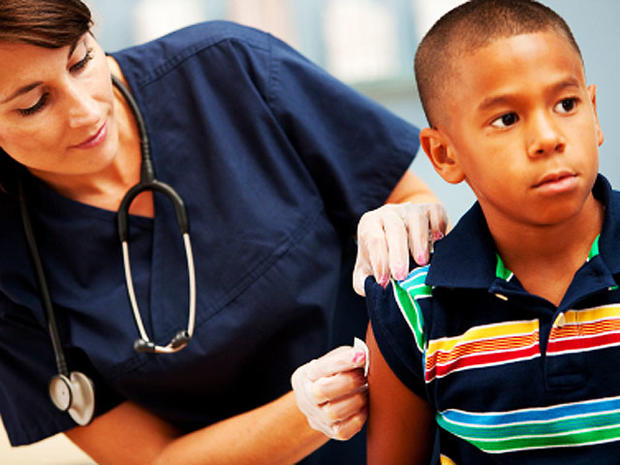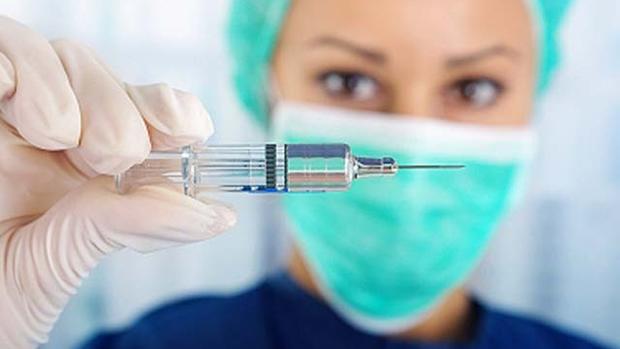Vaccines for tween, teen students often neglected: Why?
(CBS/AP) It's back to school time. For many tweens and teens, that means it's time for new school supplies - and maybe a few new vaccines.
PICTURES: 10 deadly myths about childhood vaccines
Older children need new immunizations starting at age 11 - including one for whooping cough, which is on the rise. And for the first time this year, 16-year-olds are supposed to get a booster shot for a scary type of meningitis.
But for various reasons, many kids slip through the cracks. Not all schools require adolescents to be vaccinated, like they do with kindergarteners. And "Kids this age go to the doctor much less," says the CDC's Dr. Melinda Wharton, who had to scramble to get her own daughter a meningitis shot before she headed to college.
When it comes to whooping cough, a growing number of states are requiring updated shots as students enter middle school and beyond. And a new California law requires a staggering 3 million students to show proof they're protected before taking a seat in the classroom.
"It is that kind of effort that's going to help us stem the outbreaks," says Dr. Mark Sawyer of the University of California, San Diego.
Aside from an annual flu vaccine, here are federal recommendations for preteens and teens:
*A Tdap shot between ages 11 and 12. It protects against tetanus, diphtheria and whooping cough (pertussis). Young children get vaccinated before kindergarten, but that protection wears off. While older kids usually recover, pertussis can cause weeks of misery . Worse, kids can can spread the disease to unvaccinated infants, who can die.
*A first dose of what's called meningococcal conjugate vaccine between ages 11 and 12, with a booster dose at 16. This fast-moving bacterium can cause meningitis or a bloodstream infection. Though rare, it can be so aggressive that someone can feel fine one day and be dead the next. Its main targets are adolescents and college freshmen. Carriers tend to spread it by coughing, kissing and sharing drinking glasses, especially in crowded conditions like dormitories.
CDC's statistics show that 54 percent of 13- to 17-year-olds had gotten vaccinated by 2009. But the booster dose is new advice - scientists only recently learned that that first dose wears off after five years. So if your child didn't get vaccinated until, say, 13 and now is 18 and heading for college, Wharton says don't forget the booster.
*For girls ages 11 to 12, there's the HPV vaccine for strains of human papillomavirus that can cause cervical cancer. The idea is to start the three doses needed early enough to be fully vaccinated well before the girl becomes sexually active. But in 2009, only 27 percent of girls ages 13 to 17 had gotten all three doses. A vaccine version is sold for boys to prevent HPV-caused genital warts, although CDC hasn't yet recommended its routine use.
Wharton's final advice: Adolescence is a good time to catch up on any shots that were recommended after your child started kindergarten and thus missed, like the second dose of chickenpox vaccine that became routine for the 5-year-old set just a few years ago.
The CDC has more on adolescent immunization guidelines.

